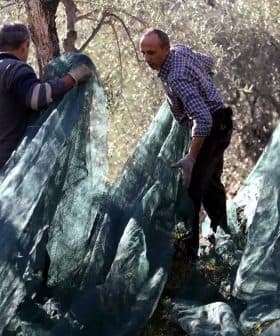Italian Food Producers Disagree Over 'Made in Italy' Plan
The initiative, which aimed to distinguish genuine Italian products from fake goods and snatch back billions of Euros in lost sales from goods masquerading as Italian products, has caused bitter division among food producers.
The Italian Government’s “Made in Italy” campaign, aimed at distinguishing genuine Italian products from fake goods, is at risk of being scrapped due to disagreements among food producers over what qualifies as “Made in Italy.” The initiative, introduced in 2016, would have added up to five percent to the enterprise value of small to medium-sized food companies and helped claw back an estimated $65 billion a year in lost sales.
The Italian Government’s “Made in Italy” campaign is under threat of being scrapped. Far from being a recipe for success, the initiative, which aimed to distinguish genuine Italian products from fake goods and snatch back billions of Euros in lost sales from goods masquerading as Italian products, has caused bitter division among food producers.
If we open the door to products with foreign ingredients, we are not talking of real Made in Italy. This is not the kind of help we are looking for.
A heated debate arose over what “Made in Italy” actually meant. Hardliners insisted that no foreign ingredients should be allowed, while other producers argued that was too stringent. The failure to agree on criteria has put the initiative at risk, according to anonymous sources from the industry ministry.
One of these sources told Reuters, “For now there is no final decision on whether to go ahead with the Made in Italy sign — we are studying it, we are doing technical checks.” The unnamed source added, “We will launch it only if it fully meets the requests of producers.”
The “Made in Italy” campaign was introduced in 2016 to certify genuine Italian food products. A star-shaped logo framed by olive and oak branches would feature on qualifying goods, making it easier for shoppers to identify authentic Italian products from Italian-looking products.
The initiative aimed to claw back an estimated $65 billion a year in sales lost to masquerading products and help small Italian businesses. It would have added up to five percent to the enterprise value of small to medium-sized food companies, according to an international marketing firm, Brand Finance.
Massimo Pizzo, Italy’s managing director at Brand Finance told Reuters, “Domestic companies would surely gain from such a logo given that Italy has a high reputation in the food sector and many of them are not well known outside the country.”
A consortium of producers of Parmigiano Reggiano Italian cheeses was among the hardliners insisting on rigid rules. Riccardo Deserti, chairman of the consortium told Reuters, “If we open the door to products with foreign ingredients, we are not talking of real Made in Italy. This is not the kind of help we are looking for.”
The consortium of Prosecco wine producers took a similar stance, rejecting the idea of products made with foreign materials being branded as Italian.
Other companies including pasta maker Barilla, felt that traditional Italian production should qualify producers for the right to use the logo. 16 of Barilla’s 30 production units are abroad; the company has factories in the US and Russia.
Paolo Barilla, vice chairman of Barilla told a food conference in March, “We are Italian, we pay taxes in Italy and we run our foreign plants following the rules of the Italian quality.”
Oscar Farinetti, founder of high-end Italian food chain Eataly told Reuters, “I totally agree with the idea of a Made in Italy sign.” Farinetti wouldn’t be drawn on which side of the fence he stood, but at the recently opened Eataly outlet in Moscow, some of its cheeses including mozzarella and burrata had to be made from local ingredients due to the embargo on some European food imports.
Various consortiums in Italy already have strict marketing regulations in place on their products. Prosecco wine must come from specific regions of northern Italy, and be made exclusively from glera grapes. Parmigiano Reggiano (Parmesan cheese) can only be produced from a precise recipe and made within a set area around the town of Parma.
There are companies located in other countries, but with Italian roots, who feel entitled to promote their products as Italian. One such company is Fonterra, a New Zealand dairy company whose Perfect Italiano range includes Parmesan and Mozzarella cheese. The company uses Italian names and features the Italian flag because it was launched by Natale Italiano, an Italian who migrated to Australia in the 1920s.
A Fonterra spokesman told Reuters, “While the brand is proud of its heritage, its packaging is evolving away from featuring the Italian flag,”
A further wrench in the works was EU standards relating to country-of-origin labeling. For example, under EU rules sausages produced in Italy from imported meat would qualify for the label, while ham made in a foreign plant of an Italian producer would not.


